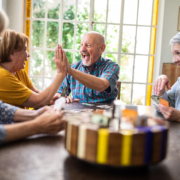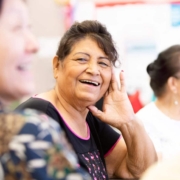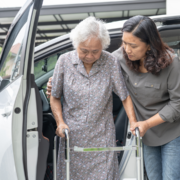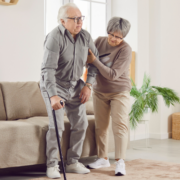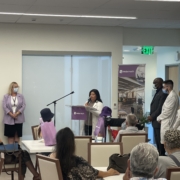October-Themed Activities for Seniors: Embrace Autumn with Fun and Engagement
October presents a wonderful opportunity for seniors to engage in activities that celebrate the beauty and spirit of fall. For seniors, staying active and involved is essential for maintaining both physical health and mental wellness. Whether you are a senior looking to try something new or a caregiver planning activities for those in your care, here are some October-themed activities that are both enjoyable and accessible.
1. Outdoor Adventures
October’s cooler temperatures make it an ideal time for seniors to enjoy the outdoors. Here are some engaging outdoor activities perfect for the fall season:
- Leaf Peeping Walks
- Organize a leisurely walk in a local park or nature reserve to enjoy the changing foliage. This is a great way to appreciate nature, get some exercise, and perhaps even capture beautiful photos.
- Encourage the collection of colorful leaves to use in crafting activities later.
- Pumpkin Picking
- Visiting a local pumpkin patch can be a delightful outing. Picking pumpkins isn’t just fun; it also provides mild physical activity and a chance to enjoy the festive fall atmosphere.
- Consider planning a pumpkin decorating session afterwards.
- Outdoor Yoga or Tai Chi
- Encourage seniors to join an outdoor yoga or Tai Chi class. These activities are excellent for improving flexibility and balance while also providing the mental benefits of mindfulness and relaxation.
- Many communities offer senior-friendly classes that cater to various mobility levels.
2. Indoor Activities
For those who prefer or require indoor activities, there are plenty of options that bring the spirit of October indoors:
- Fall-Themed Crafts
- Host a crafting session where seniors can create autumn wreaths, leaf prints, or pumpkin decorations. Crafting is a great way to stimulate creativity and fine motor skills.
- Use the collected leaves from walks to make beautiful leaf collages or bookmarks.
- Cooking and Baking
- Organize a group cooking session to make classic fall recipes like apple pie, pumpkin bread, or hearty soups. Cooking together can be a social activity that also encourages healthy eating.
- Focus on recipes that are simple yet delicious, taking into consideration any dietary restrictions.
- Storytelling and Book Club
- Arrange a storytelling afternoon where seniors can share favorite fall memories or tales. This can be a wonderful way to enhance social bonds and reminisce.
- Start a book club with autumn-themed books, providing a perfect opportunity for stimulating discussions and engagement.
- Candle Making
- Organize a candle-making workshop where seniors can create their own scented candles. This activity not only fosters creativity but also offers the calming experience of working with soothing fragrances.
- Use fall-inspired scents like cinnamon, apple, or pumpkin spice to enhance the seasonal experience.
3. Social and Community-Based Activities
Engagement with the community can greatly enhance a senior’s sense of belonging and purpose. Consider the following activities:
- Community Festivals and Events
- Attend local fall festivals or fairs. These events often feature live music, crafts, and food, offering a lively and enjoyable experience.
- If mobility is a concern, look for senior-friendly events that offer seating and accessible transport options.
- Volunteer Opportunities
- Encourage seniors to engage in volunteer work, such as helping at local food banks or participating in community clean-up days. Volunteering is rewarding and provides a sense of accomplishment and connection.
- Senior Center Celebrations
- Many senior centers host Halloween parties or fall celebrations. These events can include costume contests, dance sessions, and themed games, providing a safe and fun environment for socializing.
4. Mental and Emotional Well-being Activities
October is not only about physical activities; ensuring mental and emotional well-being is equally important:
- Mindfulness and Meditation Sessions
- Introduce seniors to mindfulness practices or guided meditation. These activities are perfect for reducing stress, improving focus, and enhancing overall mental health.
- Art and Music Therapy
- Offer sessions in art or music therapy. Creating art or enjoying music can be therapeutic, providing emotional release and enhancing cognitive function.
- Gardening
- For those who enjoy gardening, planting fall flowers or maintaining a small indoor herb garden can be a soothing and fulfilling activity.
Benefits of October Activities for Seniors
Engaging in these activities offers numerous benefits for seniors:
- Physical Health
- Outdoor activities and exercises like yoga or Tai Chi help in maintaining mobility, improving strength, and boosting cardiovascular health.
- Mental Stimulation
- Activities such as crafting, storytelling, and book clubs stimulate the brain, helping to preserve cognitive function and delay memory decline.
- Social Interaction
- Participating in group activities fosters social connections, reducing feelings of loneliness and isolation which are common among seniors.
- Emotional Well-being
- Creative and reflective activities like art therapy and mindfulness practices contribute to emotional stability and happiness.
October is a month ripe with opportunities for seniors to explore new activities, reconnect with nature, and engage with the community. Whether indoors or outdoors, these activities are designed to cater to varying interests and abilities, ensuring that every senior can find joy and engagement in the autumn season. Encouraging participation in these activities not only enhances the quality of life for seniors but also reinforces the importance of senior care in fostering a vibrant and fulfilling lifestyle.
It’s your life. Live it your way.
WelbeHealth provides full-service healthcare and personalized support to help you age well at home and in your community. Our Program of All-Inclusive Care for the Elderly (PACE) meets the changing needs of seniors, often at no cost. To see if you qualify, visit: welbehealth.com/contact


